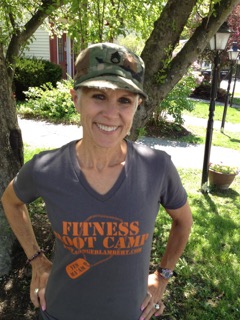Anaerobic and aerobic exercise demystified
 Have you ever been caught in a sudden rain squall without an umbrella, made a mad dash to your car and found that you were suddenly out of breath? That’s an example of anaerobic exercise, as is jumping, lifting weights and running hills. Anaerobic means without oxygen, and this type of activity means your muscles need more energy than can be supplied by burning fat.
Have you ever been caught in a sudden rain squall without an umbrella, made a mad dash to your car and found that you were suddenly out of breath? That’s an example of anaerobic exercise, as is jumping, lifting weights and running hills. Anaerobic means without oxygen, and this type of activity means your muscles need more energy than can be supplied by burning fat.
World-class sprinters rely on stored carbohydrates and calories from protein to enable them to run that 100-meter race as fast as possible. It’s likely that these athletes have a heart rate in the 85-90 percent range, the maximum level that the heart can sustain for a short period of time. On the other hand, when you engage in aerobic exercise your heart rate is around 60-85 percent. More oxygen can reach your muscles, and the more oxygen they have the longer the muscles can work without fatigue.
If you are looking to put less wear and tear on your body, then you want to do aerobic activities. Examples include walking, cycling, ballroom dancing, kayaking and swimming. These types of exercises are low impact and do not put a lot of strain on your joints. Overall fitness and endurance will increase with aerobic exercise.
In addition, your heart will be strengthened and your lung capacity will increase with aerobic exercise. You will be able to exercise longer and gain muscle tone. If that’s not enough, how about more energy, a sharper mind, weight reduction and less anxiety and depression?
The American Council of Sports Medicine recommends moderate intensity activity for 30 minutes, five days a week. If you are a beginner to an exercise program it is always a good idea to see your physician to get the OK that you are in good health. After you have embarked on your new fitness program your friends may even remark that you look younger as a result of your new fitness routines!
